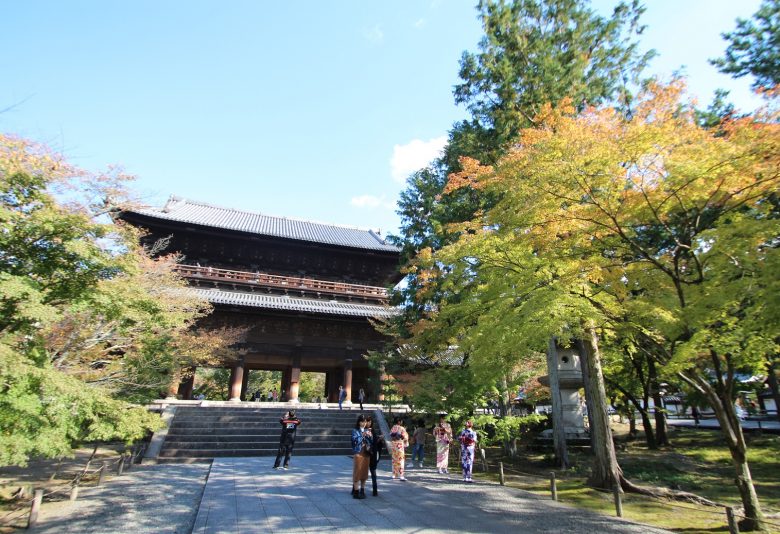
Living in Japan’s traditions: Visiting a temple
We have previously seen the manners when visiting a shinto shrine and so continuing with this series, we shall now look at the correct manners when visiting a temple.
During a stay in Tokyo or Kyoto, many aspects of Japanese culture shall be encountered daily while going out. Others shall be seen directly at your share house, guest house or private apartment, like the custom of separating garbage or leaving your shoes at the entrance of the house/apartment. Also, interacting with other housemates and roommates, from all areas of the world, shall give a glimpse into different cultures and customs as well as a chance to share others experience of life in Japan. In many of these Sakura Tips, we share our own experience and that of the Japanese people, so feel free to browse through our past tips as well.
Back to this tip’s topic, temples, as you may have already seen in our Sakura Tip comparing temples with shrines, correspond to Buddhism. Some manners remain the same as those of when visiting a shrine, but some differ greatly. Lets take a look.
Visiting a temple
The first similarity appears when entering a temple’s grounds. Here, visitors shall bow once as a sign of respect and salutation to the Buddhist deities.

As an additional note, this main entrance gate is called a “sanmon” and they vary greatly in size and structure from temple to temple.
Interestingly, the word “sanmon” means “mountain gate” (san = mountain, mon = gate), this is because traditionally temples where originally built on mountains.
Purifying oneself
Continuing with the similarities, the next step is usually to purify oneself before prayer. Some temples have a “chozuya” (or “temizuya”) somewhere in the temple grounds, but not all temples have one. If there is one, please use it in the same way as when visiting a shrine. The steps are as follows:

1. Hold the ladle with your right hand and scoop water from the basin. Pour some water gently on your left hand.
2. Now grab the ladle with your left hand and gently pour water on your right hand.
3. Grab the ladle once again with your right hand and pour some water on your left hand and slightly rinse your mouth.
4. Once again clean your left hand by poring some water.
5. Finally, scoop some more water if the ladle is empty and hold it upright, to make the water pour on the ladle itself, cleaning it.
6. Leave the ladle again on the “chozuya”.

Other temples have an area to hold incense sticks. The smoke of this incense sticks is used to purify oneself by drawing the smoke to ones body. It is also possible to buy an incense and offer it here as well. If so, please do so before praying.
Prayer
There may be many smaller temples located in the temple grounds, and any of them shall do to share your prayers, but usually visitors head towards the main hall to do so.

Here, make an money offering at the “saisen bako” (offertory box) located at the front of the main hall and begin with your prayer. To do so simply join your palms before you, make a bow and silently pray. It is important to remember that, different to when visiting a shrine, clapping is not required in a temple.
After praying make one more bow as an appreciation to the deities.
You can later enjoy the atmosphere of the temple and even see some of their exclusive exhibition of treasures (depending on the temple) or partake in one of their rituals.

As a final note, upon leaving the temple, please face the inside of the temple grounds at the main “sanmon” gate and make a final bow.
SAKURA HOUSE
Nishi-Shinjuku K-1 Bldg. 2F
7-2-6 Nishi-Shinjuku, Shinjuku-Ku Tokyo, Japan
Postal code: 160-0023
Google map
- From Japan:
- 03-5330-5250
- From outside Japan:
- +81-3-5330-5250
- Mail:
- [email protected]
- Office hours:
- 8:50 am to 8:00 pm
We are open every day of the year.
- Tokyo time:
- 10:51(We are open now!)







